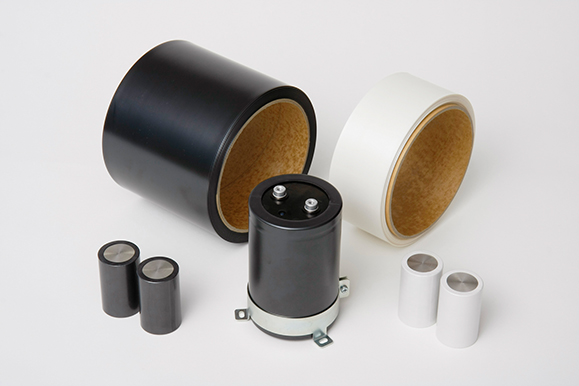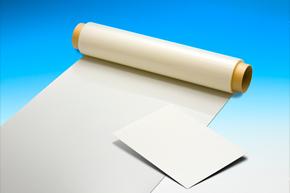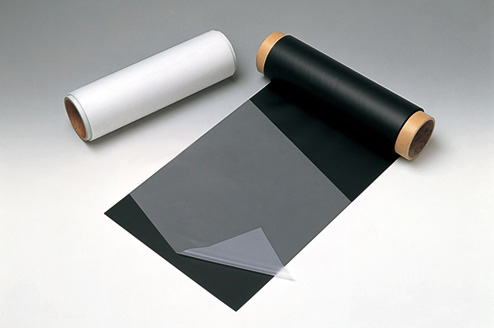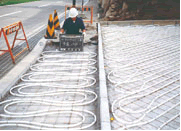Daily Goods / Leisure & Sports
324 products.
Filter by business area
[Close]
90 products.
[Close all]
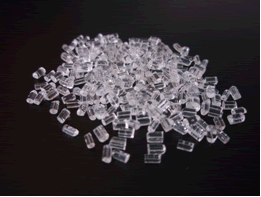
DURABIO™ is a bio-based polycarbonate resin derived mainly from plant-based isosorbide. Compared with conventional polycarbonate resin (hereafter abbreviated PC resin) made from bisphenol A (hereafter abbreviated BPA), DURABIO™ features high transparency, excellent optical properties, and outstanding scratch resistance. Its puncture impact behaviour are comparable to those for PC resin. DURABIO™ is a plant-derived polymer but is not biodegradable. It has excellent durability, making possible its deployment in a wide variety of applications such as for optical ・energy related components, a substitute for high-performance glass components, as well as for electronic equipment ・ automotive housings ・ interior and exterior decor.
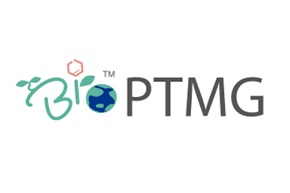
BioPTMG is a polyether polyol manufactured from plant-derived raw materials.
BioPTMG has the same performance as petroleum-derived PTMG as a raw material for polyurethane and polyester resins and has excellent impact, wear and hydrolysis resistance, flexibility at low temperatures, etc. Taking advantage of these characteristics, it can be used in a wide range of fields, from interior and fashion to industrial materials.
- Grades:
- BioPTMG650、BioPTMG1000、BioPTMG2000、BioPTMG3000
- Japan, Chemical Substances Control Law:
- (7)-129
- Japan, Poisonous and Deleterious Substances Control Law:
- Not applicable.
- Japan, Fire Services Law:
- Hazardous Material Class 4 Petroleums No.4 Hazardous Rank III(BioPTMG650)
Combustible Materials, Flammable Solids(BioPTMG1000, 2000, 3000)
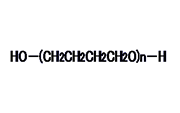
PTMG (Poly(tetramethylene ether)glycol / PTMG) is a linear polyether glycol with hydroxyl groups on both ends. As a polyol, it reacts readily with isocyanates (for example MDI, TDI), etc. to make resins with excellent properties.
- Grades:
- PTMG250、PTMG650、PTMG850、PTMG1000、PTMG1300、PTMG1500、PTMG1800、PTMG2000、PTMG3000、PTMG3200(developed grade in mass production)
- Japan, Chemical Substances Control Law:
- METI-No. 7-129
- Japan, Poisonous and Deleterious Substances Control Law:
- Not applicable.
- Japan, Fire Services Law:
- Hazardous Material Class 4 Petroleums No.3 Hazardous Rank III (PTMG250)
Hazardous Material Class 4 Petroleums No.4 Hazardous Rank III (PTMG650,850)
Combustible Materials, Flammable Solids (PTMG1000, 1300, 1500, 1800, 2000, 3000, 3200(developed grade in mass production))
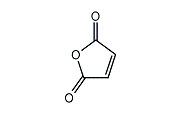
Maleic anhydride is produced by oxidation of benzene or a C4 hydrocarbon such as butane in the presence of a vanadium oxide catalyst. Maleic anhydride can be converted to maleic acid by hydrolysis and to esters by alcoholysis.
- EINECS: No. 203-571-6
- Japan, Chemical Substances Control Law: METI-No. 2-1101
- Japan, Industrial Safety and Health Law: Dangerous Goods and Toxic Substances Whose Names Should be Labeled and be Notified Appended Table 2-1978
- Japan, Poisonous and Deleterious Substances Control Law: Not applicable.
- Japan, Fire Services Law: Not applicable.
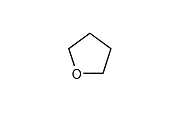
THF (Tetrahydrofuran) is a stable compound with relatively low boiling point and excellent solvency. It is widely-used for dissolution and reaction of various substances. Also it is used as a starting material for the synthesis of poly(tetramethylene ether) glycol (PTMG), etc. Since 1982, Mitsubishi Chemical's Tokai plant has produced high-purity, high-quality THF from butadiene using our proprietary technology.
- EINECS: No. 203-726-8
- Japan, Chemical Substances Control Law: METI-No. 5-53
- Japan, Industrial Safety and Health Law: No. 5-53
- Japan, Industrial Safety and Health Law: Dangerous Goods and Toxic Substances Whose Names Should be Labeled and be Notified Appended Table 2-1278
- Japan, Poisonous and Deleterious Substances Control Law: Not applicable.
- Japan, Fire Services Law: Hazardous Material Class 4 Petroleums No.1 (water-soluble liquid). Hazardous Rank II
- U.N. Class: 3
- U.N. No.: UN2056
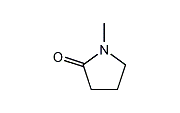
NMP (N-Methyl-2-Pyrrolidone) is a polar solvent with outstanding characteristics. It has a wide range of applications because it offers very high solvency, high boiling point, low freezing point, and ease of handling.
- EINECS: No. 212-828-1
- Japan Chemical Substances Control Law: METI-No. 5-113
- Japan, Industrial Safety and Health Law: No. 8-1-1014
- Japan, Industrial Safety and Health Law: Dangerous Goods and Toxic Substances Whose Names Should be Labeled and be Notified Appended Table 2-2108
- Japan, Poisonous and Deleterious Substances Control Law: Not applicable.
- Japan, Fire Services Law: Hazardous material Class 4 Petroleums No.3 (water-soluble liquid).
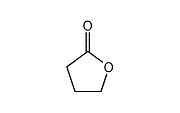
GBL has a wide range of practical applications because of its low freezing point, high boiling point, and a unique combination of solvent and electrical properties. It has applications as a solvent for special resins, in photography, in batteries, and as an electrolyte. Also a number of derivatives are synthesized from GBL.
- EINECS: No. 202-509-5
- Japan Chemical Substances Control Law: METI-No. 5-3337
- Japan, Industrial Safety and Health Law: No. 5-3337
- Japan, Industrial Safety and Health Law: Dangerous Goods and Toxic Substances Whose Names Should be Labeled and be Notified Appended Table 2-412
- Japan, Poisonous and Deleterious Substances Control Law: Not applicable.
- Japan, Fire Services Law: Hazardous material Class 4 Petroleums No.3 (water-soluble liquid).Aprotic, polar solvent.
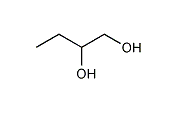
12BG (1,2-butanediol) is a branched glycol that has a primary hydroxyl group and a secondary hydroxyl group on adjacent carbon atoms. Mitsubishi Chemical Corporation offers two grades of purity. Both can be reacted with a dicarboxylic acid (e.g., phthalic acid or adipic acid) for use as a polyester polyol or a plasticizer, or reacted with an unsaturated dicarboxylic acid (e.g., maleic anhydride) for use as a raw material for unsaturated polyester resin. The high-purity grade 12BG is suitable for use as a solvent for inks and as a raw material for surfactants.
- EINECS: No. 209-527-2
- Chemical Substance Control Law (CSCL): METI-No. 2-235
- Japan, Industrial Safety and Health Act (ISHA): No. 2-235
- Japan, Poisonous and Deleterious Substances Control Act: Not applicable.
- Japan, Fire Service Act:Hazardous Materials, Category IV—Class III petroleums (water soluble liquids)
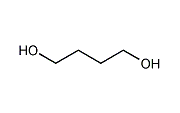
14BG (1,4-Butanediol) is a straight chain glycol with hydroxyl groups on both ends. It is used as a raw material for high performance polyester and polyurethane resins as well as for industrial chemicals like tetrahydrofuran and gamma-butyrolactone. Since 1982, Mitsubishi Chemical's Tokai plant has produced high-purity, high-quality 14BG from butadiene using our proprietary technology.
- EINECS: No. 203-786-5
- Japan, Chemical Substances Control Law: METI-No. 2-235
- Japan, Industrial Safety and Health Law: No. 2-235
- Japan, Poisonous and Deleterious Substances Control Law: Not applicable.
- Japan, Fire Services Law: Hazardous material Class 4 Petroleums No.3 (water-soluble liquid).
Polycarbonatediol, BENEBiOL™
[Close]
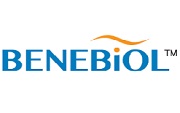
Polycarbonatediol(PCD) is a linear polycarbonate with hydroxyl groups at both ends. It easily reacts with isocyanate compounds(e.g. MDI, TDI, IPDI, H12MDI), and generates polymers with characteristics such as durability and chemical/hydrolysis resistance. BENEBiOL™ is the biomass-based PCD developed by our proprietary manufacturing technology. Because of “key monomer“ of each grade, polyurethane resins based on BENEBiOL™ will show an outstanding property level with regard to flexibility and chemical/stain resistance for example, in addition to the characteristics of conventional PCD. Besides, your product will be equipped with unique touch and feeling.Biomass-based polycarbonatediol with superior characteristics
Characteristics of polyurethane resins based on BENEBiOL™
non-edible raw material is used for some grades
transparency, stain resistance, chemical resistance, durability, toughness, weather resistance
flexibility, soft feel and touch, high hardness, good fit
FORZEAS™ is a compounding resin developed by Mitsubishi Chemical Corporation using biodegradable and bio-based BioPBS™ and other materials. Each grade has its own unique features and can be used in various applications.
FORZEAS™ can be flexibly formulated depending on customers’ requirements for performance and bio-degradable/bio-based certification.
Biodegradable Polymer, BioPBS™
[Close]
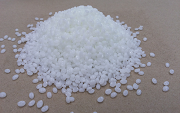
Polybutylene succinate (PBS) is the biodegradable plastic that decomposes into water and carbon dioxide with the microorganism under the soil. PBS has a high heat resistance among the general biodegradablility resin, and PBS has high compatibility with a fiber. Using these goodness, it's possible to achieve the performance which can't be shown by itself as the compound with other resin and material.duct life cycle.
NOVADURAN™ PBT resin has excellent electrical insulation performance, good chemical resistance, moldability. Taking advantage of these characteristics, it has been widely used as a material for automotive ,E&E, and high-performance film applications.
XANTAR™ PC has excellent transparency, impact resistance, flame reistance, heat resistance, electrical properties.
Taking advantage of these characteristics, it has been widely used as a material for automotive ,E&E,
and high-performance extrusion applications.
Acrylic Sheet, SHINKOLITE™
[Close]

SHINKOLITE™ is the registered trade name of Mitsubishi Chemical's continuous cast acrylic sheet. Known as acrylic resin, this material has excellent weather resistance, stainability, and processability properties, and so is used in many applications such as signage, display, large water tanks, LCDs, and light guide plates. We will continue to leverage these properties and develop new products such as the flame-retardant and impact-resistant grades of SHINKOLITE. It is our goal to provide environmentally friendly products that make society safer and help people to have more comfortable and prosperous lives.
SURFLEN™ is a modified polyolefin elastomer with improved weather resistant adhesion and low temperature flexibility/shock resistance. It was developed uniquely in our company as a primer for coating non-polar olefin resin surfaces such as polypropylene (PP) and polyethylene (PE). SURFLEN™ binds well not only to polyolefin but also to various plastics and metal materials, and can be used in a wide range of applications including paints, print and adhesive primers for these materials.
Antistatic Agent, SAFTOMER™
[Close]
SAFTOMER™ is an ionic acrylic coating material used for surface coating as an antistatic agent. It is made of a polymer that yields a lasting antistatic property.
UV Curable Coatings, DIABEAM™
[Close]
UV/EB Curable Resin, Yupimer™ UV
[Close]
Yupimer™ UV series are functional hard coating materials developed by Mitsubishi Chemical Co., with distinctive technologies. They have various functions such as antistatic, anti-fingerprint, slipperiness, and moldable.
Developed to respond to the increasing trends toward compactness and high speed of printers, this product has attracted considerable attention. We intend to develop into the field of color toners to expand the potential market further.
YOSHINOX 425 (2,2'-Methylenebis(6-tert-butyl-4-ethylphenol)) is a phenolic antioxidant used as a resin additive or resin chemical.
Golf Shaft
[Close]
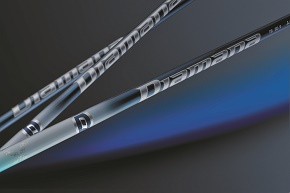
Golf Shafts Product Page - Carbon fiber has been developed into a leading material in the field of sports equipment, due to its excellent design flexibility and its superior heat and impact resistance. The share of CF shafts in the golf shaft market has been growing for many years, driven especially by strong demand for lightweights, and it continues to grow.
(CF shafts are produced by wrapping sheets of carbon fiber impregnated with epoxy resin, known as “prepregs,” around a metal core, and then curing at high temperature.)
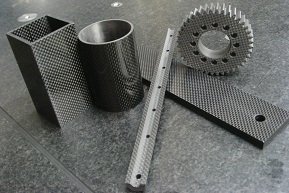
Carbon fiber composite materials, also known as carbon fiber reinforced plastics (CFRP), are composite materials made of carbon fibers and resin (mainly epoxy resin).
As light, strong, and hard materials, they are used in wide range of applications such as sporting goods, industrial, aircraft and automobile components. By selecting suitable resin, it is possible to add features like heat resistance, impact resistance, and flame retardant, and thus provide superior characteristics not found in conventional metals and ceramics to enable a reduction in the weight of parts, give freer design.
Carbon Fiber Pellets
[Close]
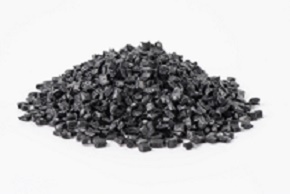
Carbon fiber pellets are thermoplastic molding materials created by blending carbon fiber with various resins to achieve performance that is superior to conventional reinforced resins. Advanced physical properties can be achieved by combining different base resins and carbon fibers, according to the specific application.
Carbon Fiber FMC (CF-SMC)
[Close]
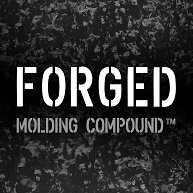
Carbon Fiber FMC (CF-SMC) is a sheet-type intermediate material made of cut high-strength carbon fiber impregnated with thermosetting resin. This material can be press molded, substantially reducing molding time compared to conventional autoclave or oven molding.
In addition, compared with carbon fiber intermediates of Continuous fibers, the random arrangement of Short fibers ensures fluidity and makes it possible to mold intricately shaped parts like those with ribs and bosses.
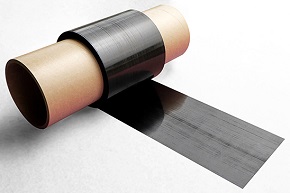
Under Development
Kyron™ ULTRA is a new sheet-like intermediate material developed by Mitsubishi Chemical, in which carbon fibers are impregnated with engineering plastics. It is a high performing carbon fiber composite material in the form of a UD (Uni-Directional) prepreg with carbon fiber in one direction.
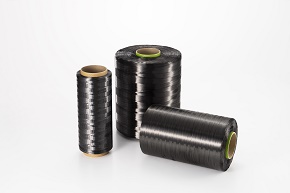
Carbon fiber is a high-strength and high-elastic modulus material, yet its specific gravity is only one-fourth that of iron. It, therefore, enables high strength, high rigidity, and weight-saving in a wide variety of applications.
Carbon fiber tow, made of bundles of untwisted filaments, is the essential material in our carbon fiber product line.
Carbon Fiber Fabrics
[Close]
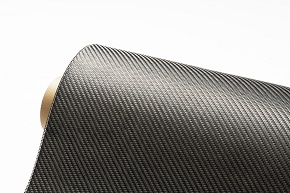
Carbon fiber fabrics have excellent drape properties which make them ideal for 3D shape applications. Due to the outstanding design possibilities they offer, carbon fabrics are also in high demand for applications that require visual appeal. As well as their design potential, carbon fabric materials offer excellent layup efficiency. You can layup a single ply in two directions.
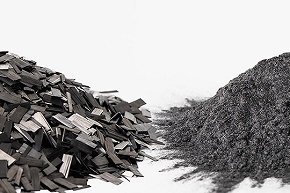
Carbon Chopped Fiber is a product made by chopping carbon fiber tow.
Carbon Milled Fiber is a product made by grinding milling chopped fiber into a powder (milled) form.
Chopped fiber is typically around 3 to 6 mm long, while milled fiber is typically less than 200 µm long. Both of these materials are used to enhance the physical properties of thermoplastic resins and rubbers, and to increase electrical and thermal conductivity.
Heat-Shrinkable Tube, HISHITUBE™
[Close]
Electronic Functional Materials
[Close]
Silicone rubber film, KEIJU™
[Close]
TREXPRENE™ TPV (Thermoplastic Vulcanizate) is a heat stabilized, vulcanized PP / EPDM product. Globally available for a wide range of applications and approved to a variety of Automotive Specifications.
TEFABLOC™ is versatile family of thermoplastic elastomers (TPE). Applies to most of the environments and plastic converting processes.
TEFABLOC™ incorporates several technologies including TPE-S, TPO and TPE-E. Among the large scale of possible properties, some of them are also boosted in process by reactor or dynamic cross-linking.The accurate combination of features leads to tightly satisfy application specifications even the most demanding ones.
VINIKA™ is vinyl based, soft and rigid formulations designed for a wide variety of applications. Fine-tuned properties such as hardness, heat and impact resistance, colour and much more.
Sunprene™ is high performance flexible PVC-P compounds for demanding environments with outstanding aesthetics.
Soarlite is the trade name of ethylene-vinyl alcohol copolymer for injection molding application as engineering plastics.
Synthetic Paper , YUPO™
[Close]

"YUPO" is a synthetic paper made from polypropylene resin as its primary material. It offers extraordinary beauty, strength and flexibility. YUPO combines the advantages of both paper and plastic film, and thanks to its unique qualities, it is used widely in several fields, including the commercial printing, packaging and communication paper.
4-HYDROXYBUTYL ACRYLATE, 4HBA
[Close]
Water Purifier, Cleansui
[Close]
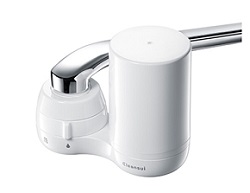
Home water purifier using hollow fiber membrane material. We off a full lineup of high-performance water purifiers including faucet-mounted models, pitcher models, built-in models, and commercial models. We provide the water necessary for life through products to stockpile water for long periods of time and water-softening shower heads with built-in cartridges.
Refer to the Cleansui website for more information.
- Product Finder
-


